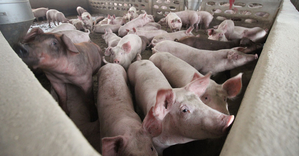Laos warns of African swine fever outbreak

Vientiane, Feb 26 (IANS) Lao authorities have declared Xaysomboun province in central Laos a red zone following the detection of African swine fever cases in the province.
Local authorities conducted checks and officially confirmed the presence of African swine fever in Vanghai village in the Thathom district of Xaysomboun province on February 19, Xinhua news agency reported quoting the Lao National Radio on Wednesday.
To prevent further spread, officials have banned the processing and sale of infected pork. The disease poses a serious threat to pig production and the livelihoods of Lao people. Authorities are calling for coordinated efforts to contain and eliminate the outbreak.
To curb transmission, increased surveillance is being conducted in several villages across Xaysomboun and Bolikhamxay provinces. Additionally, authorities will carry out inspections and collect samples for analysis to minimise losses.
Farmers have been urged to strengthen biosecurity measures and comply with movement restrictions to help control the outbreak quickly.
The animal epidemic affects pigs and wild boars and has an almost 100 per cent death rate. It requires high temperatures to kill the virus, which can survive up to three years in frozen meat and up to one year in dried meat.
African Swine Fever (ASF) is a contagious and deadly viral swine disease affecting domestic and feral swine of all ages.
However, it cannot be transmitted to people, and properly prepared pork products are safe to eat. Although it is not a direct threat to human health, its deadly nature in swine could result in pork product shortages, disruptions to trade, and economic impacts. There is no treatment or vaccine so the best way to protect pigs is by prevention.
ASF is endemic in sub-Saharan Africa, where the disease was initially discovered.
In Europe, ASF was restricted to the Italian island of Sardinia from 1995 until 2007. However, in 2007 ASF outbreaks occurred in Georgia, and the disease spread to the neighbouring countries, affecting domestic pigs and wild boar.
In 2014, the first outbreaks were reported in the European Union, affecting wild boar from the Baltic states and Poland. Since then, the disease has spread to other EU countries and neighbouring non-EU countries, and there have been outbreaks in Asia, Oceania and some American countries in recent years.
–IANS
int/jk/rad




